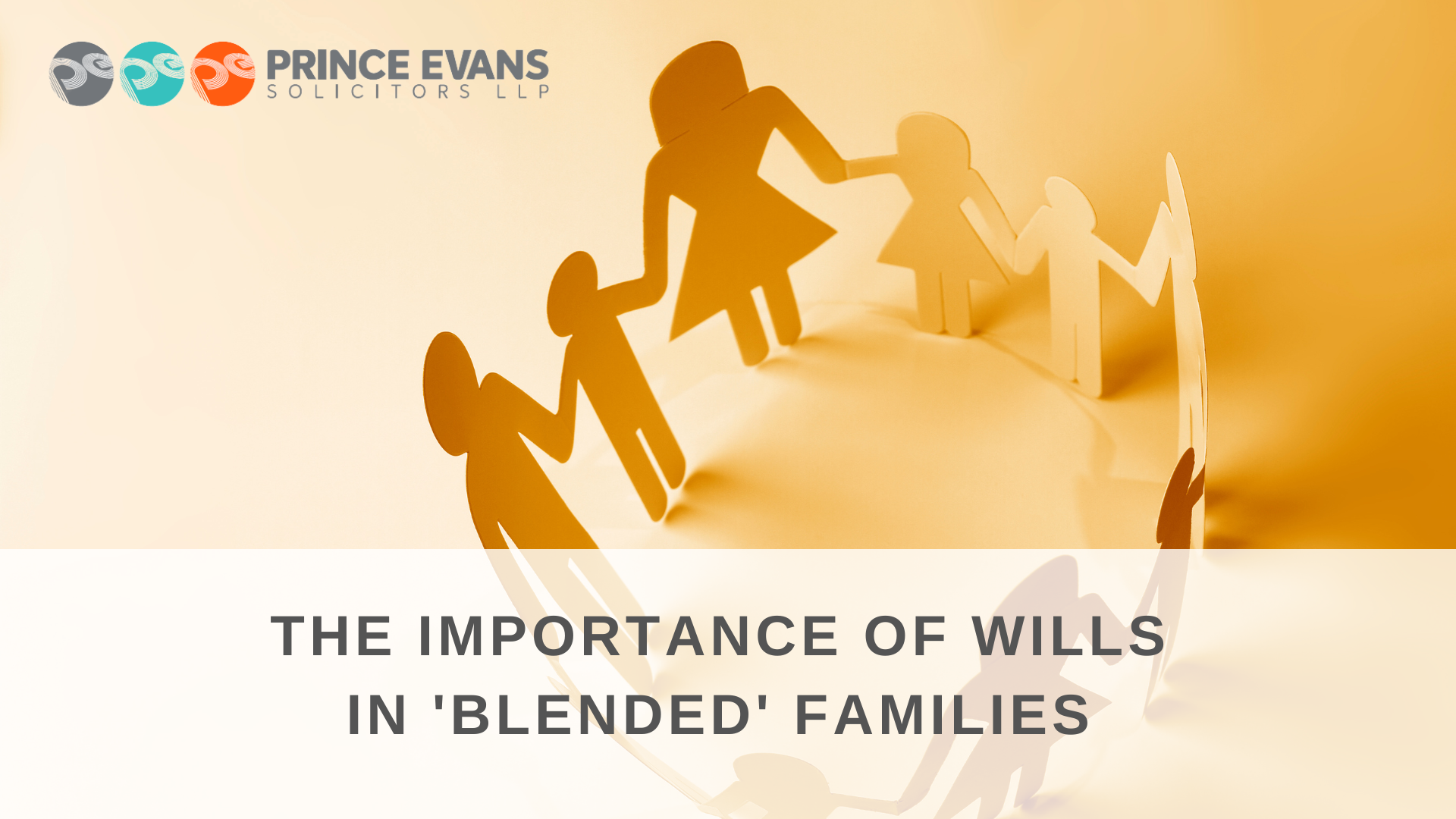The Importance of Wills in ‘Blended’ Families
In the present day, there is an increasing emergence of the ‘blended’ family. Blended families take many different forms, for example, a first or subsequent marriage where there are children from a previous relationship.
It is not common knowledge amongst the general population, that entering into a marriage or civil partnership automatically revokes any valid, existing Will(s).
In the event an individual enters into a marriage or civil partnership; and does not make a new Will, passing away in the intervening period, they would die intestate (i.e. without a Will); and the intestacy provisions shall take effect.
The intestacy provisions are rigid and formulaic in nature, in which the first £270,000 of a deceased person’s estate passes to the surviving spouse or civil partner, by way of a statutory legacy.
In the event a person’s estate does not exceed £270,000 this leaves no automatic entitlement for children; or other dependants.
Where a deceased person’s estate exceeds £270,000, following the payment of the statutory legacy, the remaining balance of the estate is split into two equal shares. The first share passes equally amongst the deceased’s children; and the remaining share also passes to the surviving spouse/civil partner increasing their £270,000 statutory legacy.
For many, these provisions do not align with their wishes, highlighting the importance of making a Will upon marriage/civil partnerships.
Similarly, in the event you are in a long-term partnership or co-habitate, but are not married or in a civil partnership, your loved one would not stand to benefit any entitlement whatsoever from your estate under the intestacy rules. If you wish to ensure that they are provided for, a Will has to be made to account for any provision.
In circumstances where no or unsatisfactory provision is made for children or dependants, even inadvertently by omission, such child or dependant may seek to rectify this position upon your death by way of instigating litigation. This highlights the importance of a having carefully considered and well drafted will executed, to ensure your wishes are accurately reflected, to minimise the risk of such an occurrence.
Other considerations which the scope of the intestacy provisions do not account for , which can be placed within a Will, are:
· Funeral wishes
· Guardianship provisions
· Gifts of personal belongings often of sentimental importance
· Charitable or personable legacies
· Provisions for the management and winding up of businesses
Our Wills, Trust and Probate Team have a wealth of experience in advising clients in relation to Wills for blended families; and how wishes can be carefully accounted for to provide you with peace of mind.
Please feel free to contact us by telephone on 020 8567 3477 or by email at info@prince-evans.co.uk to discuss your requirements further.

